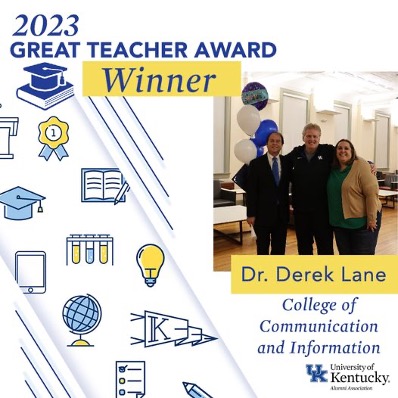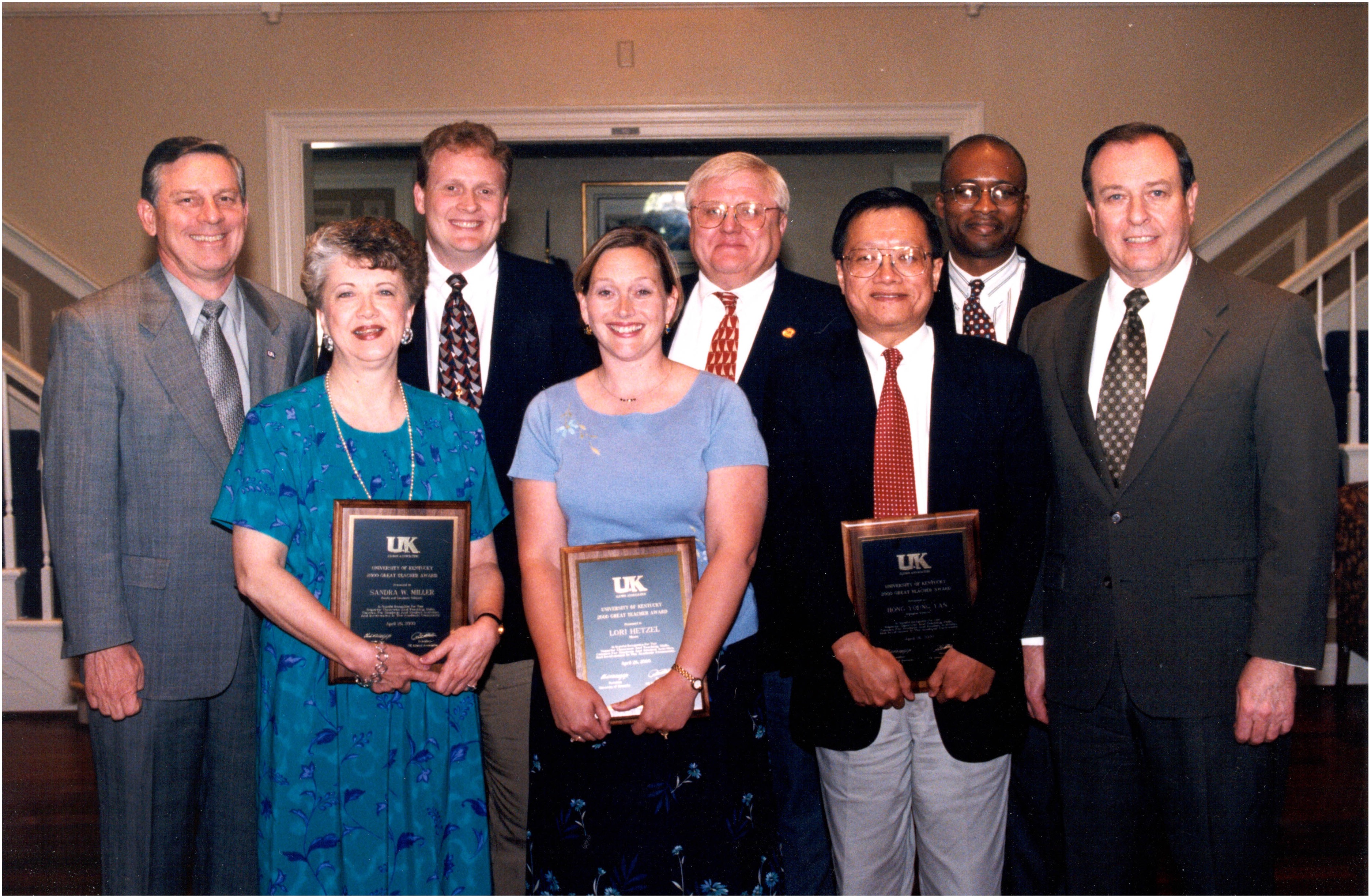Teaching
I genuinely enjoy and greatly benefit from teaching. In fact, if you've explored my research page, you already know that I have a strong research focus on improving instructional communication in applied contexts. I've been developing a causal process model that attempts to identify the most salient teacher and student behaviors to predict knowledge application and acquistion.
My previous TCEs (Teacher and Course Evaluations) are available here.
In 2023 I was honored with one of only six University of Kentucky Alumni Association Great Teacher Awards. Thanks to Karen Perry (pictured with me below on the right--my left) who took a great deal of time, effort, and care to nominate me!

The UK Alumni Association Great Teacher Award is special because nominations come directly from students -- and because it has been supported by the UK Alumni Association for over 62 years! I was honored to win the award for the first time in 2000 as an untenured professor! (I look really young in the photo)

In the spring of 2017, students in my (COM 454) communication and technology honors course surprised me with a cake for my 30th wedding anniversary! Thanks to all of you for making it a great day and a great semester!

Pictured from left to right: Alex Padilla, Shawn McLuckie, Fotis Tompoulidis, Jen Branscum, Emily Wakeley, Caran Kennedy, Caitlyn Barnes, Alicia Perkins, me, Reid White, Bri Poe, Hannah Schuler, Ansley Siebold, and Madalyn Klika (Not pictured: Hannah Clendenin, Katherine Huffman, or Brandon Lee).
In the fall of 2019 I taught COM 315 (Understanding Workplace Communication in a Diverse U.S. Society to 150 undergraduate students!
Please use the blue buttons below to learn more about my teaching.
There are several communication behaviors that eventually influence my success as a teacher--because students will view me as more or less competent based on my mastery of these behaviors. Some behaviors will influence student attitudes and their affect toward learning (e.g., immediacy, caring, confirmation, and shared control) while other behaviors are fundamentally related to student knowledge acquistion and application. For example, how I use different types of knowledge to engage students can also make a tremendous difference. Taken together, my knowledge of content, pedagogy, curriculum, pedagogical content, learners and their characteristics, educational contexts, and knowledge of educational ends, purposes, and values, have all been cultivated as I attempt to positively impact student learning (For more information about knowledge growth in teaching see Shulman (1987) and Friedrich (2002)).
is the unique model and innovative teaching techniques I have shared with my students and colleagues throughout the academy. I genuinely enjoy and greatly benefit from teaching. For me, helping students to understand the theory and application of communication in multiple contexts always leads to an improved clarity and sense of renewal in my own personal development as an educator, researcher, and student of communication science. I value the importance of communication in the teaching and learning process. I understand that the difference between knowing and teaching is communication Download Teaching Philosophy as PDF
+ Teaching and Course Evaluations
+ Teaching Awards and Recognition





